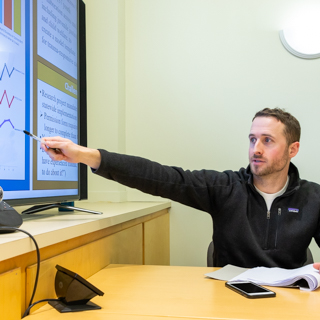National and State Partners
Montana’s LSOC project is supported by a number of partners who work collaboratively to support the training, technical assistance and evaluation needs of the project.
Children's Mental Health Bureau
The Children’s Mental Health Bureau of the Montana Department of Public Health and Human Services is supporting the LSOC project through the Innovation Award, designed to spark service innovation. The Children’s Mental Health Bureau administers state-funded mental health services for children.
University of Montana Center for Children, Families, and Workforce Development
The University of Montana Center for Children for Children, Families, and Workforce Development works to improve the lives of children and families in Montana, with a special focus on families involved with the child welfare system. The Center focuses on three priority areas: workforce development, research and data, and policy. The Center has partnered with the Children’s Mental Health Bureau to administer the Innovation Award and is a key partner in LSOC’s work.
CONNECT Referral System
CONNECT is a secure web-based system for sending and receiving referrals among Montana service providers. In November 2020, the EES was automated in the Connect referral system. Such digitization stands to further streamline the referral process after trauma and victimization screening.
Office for Victims of Crime
The Office for Victims of Crime (OVC), which funded LSOC for six years, is committed to enhancing the nation’s capacity to assist crime victims and to providing leadership in changing attitudes, policies, and practices to promote justice and healing for all crime victims. OVC distributes federal program funds, offers trainings, supports national projects, and hosts programs to help raise awareness about victim rights and services to the public.
The National Council of Juvenile and Family Court Judges
The National Council of Juvenile and Family Court Judges (NCJFCJ) served as the national training and technical assistance provider for the LSOC project. NCJFCJ seeks to provide communities with knowledge and skills capable of improving the lives of families and children who seek justice. NCJFCJ offers training and technical assistance that contributes to the development and implementation of national policy, standards, and procedures related to children and families. NCJFCJ works also to uphold the rights of victims and their family members, while furthering community safety. NCJFCJ provides training and technical assistance to demonstration sites through tools, resources, and data-driven strategies that seek to strengthen demonstration site ability to identify, intervene, and provide coordinated and effective services to youth and child victims. The organization is working to identify lessons learned from the demonstration sites and to develop materials to support future replication.
Illinois Criminal Justice Information Authority (LSOC Demonstration Project)
The Illinois Criminal Justice Information Authority (ICJIA) formed in 1983 as a state agency committed to improving the administration of criminal justice. In an effort to improve efficiency and outcomes, ICJIA brings together justice system leaders and the public to assist in the identification of challenges or barriers present within the Illinois justice system.
Virginia’s LSOC Demonstration Project
Linking Systems of Care (LSC) for Children and Youth is a statewide demonstration initiative funded by the United States Department of Justice, Office of Justice Programs, Office for Victims of Crime. The goal of the project is to identify children and youth who have had crimes committed against them and to address the potential serious and long-lasting consequences of exposure to crime. The project gives Virginia an opportunity to collaboratively create, strengthen, and improve the coordination of services provided by the many child and youth-serving systems to ensure that children are screened for victimization, children, youth and families are provided comprehensive and coordinated services to fully address their needs, and policies and practices are established to sustain this approach long term.
Office of the Ohio Attorney General (LSOC Demonstration Project)
The Ohio Attorney General’s Office (OAG) consists of nearly 30 distinct sections that advocate for consumers and victims of violent crime, assist the criminal justice community, provide legal counsel for state offices and agencies, and enforce state laws. The OAG offers services to protect all Ohioans, including children, families, consumers, the elderly, victims of violent crimes and veterans. The OAG has a strong history of working to strengthen systemic responses to child abuse, evident in such endeavors as the creation of a Child and Elder Abuse section, a week-long forensic interview program for multidisciplinary teams and first responders who work with abused children, safety summits throughout the state, initiatives to assist youth who are victims of human trafficking, and the first Ohio foster youth symposium. The OAG continues to work closely with national, state and local advocacy groups to benefit victimized children and youth in Ohio.
Montana Youth Court Services, Office of the Court Administrator
Juveniles usually enter the juvenile justice system through contact with law enforcement, although they may be referred to juvenile probation by other agencies and parents. Juvenile probation is an integral part of the Youth Court and is overseen by the Youth Court judge within each of the 22 judicial districts. Youth Court Services in the fall of 2020 launched the Experiences and Expressions Screener in all 22 of its judicial districts
